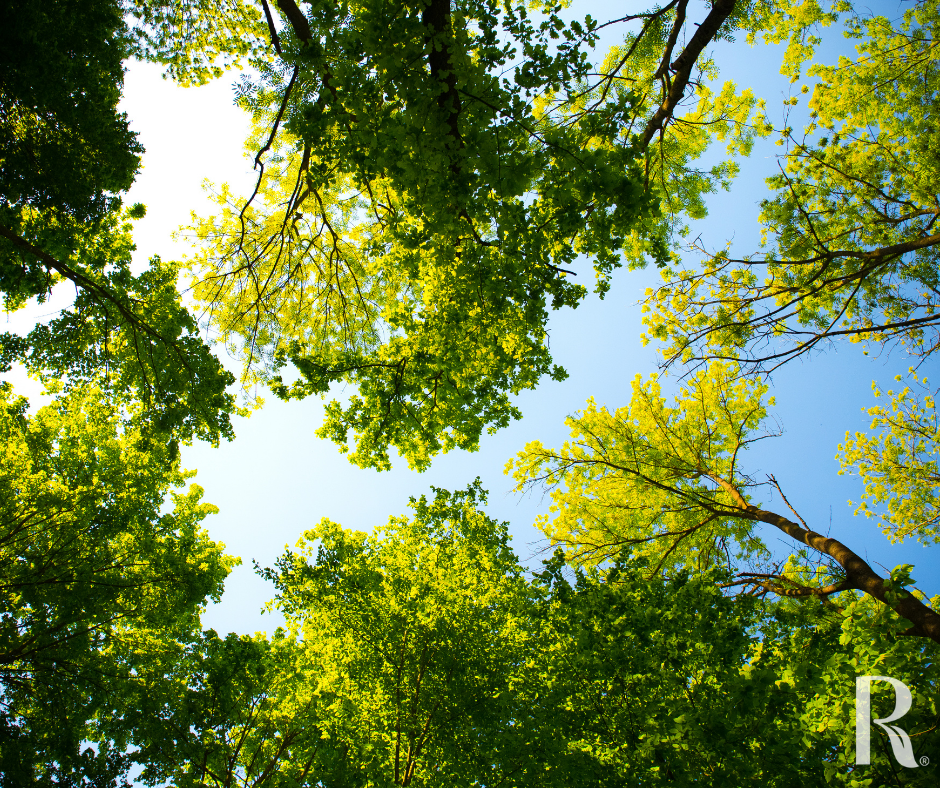Urban Heat Islands are a real thing. This is where our cities and surrounding suburbs have a lack of vegetation and instead have large expanses of dark and hard surfaces that raise the heat factor.
Planting trees and plants will cool the air, and at the same time create green vistas for us to view from indoors and outdoors.
How?
- Trees and plants have a kind of inbuilt air-conditioning system called
evapo-transpiration. - Interrupt solar radiation.
- Provide shading to buildings.
- Cool the soil directly by minimising moisture loss from the surface.
- Produce essential emissions that clean our air.
Trees also look great, and we all know that seeing green is a good thing for us psychologically.
Trees can also provide colour in the form of flowers and autumnal foliage, backdrops to gardens, habitat for birds, insects and wildlife and fruit and nut harvests.

Varieties?
This is an impossibly long list, and it depends on the space, location and needs you have to determine which tree/s you will want to plant.
Always consider the tree height at maturity and remember that the root systems are generally as wide spreading as the tree is tall. You also need to think about whether the tree you are considering planting is deciduous or evergreen, and what its weed potential is in your area.
Soil preparation is key for good establishment of trees. Prepare soil by digging through ActivGrow Soil Improver, and mulch thickly after planting with your choice of mulch, Tea Tree, Cypress, Sugar Cane or Pine Bark.

Did you know?
- The oldest living tree is the Bristlecone Pine (Pinus longaeva). One particular specimen nicknamed “Methuselah” and located in California’s White Mountain Range is estimated to be over 5,000 years old!
- The tallest tree is a Californian Redwood (Sequoia sempervirens) called “Hyperion” standing at 115m tall with a Tasmanian gum (Eucalyptus regnans) called “Centurion” coming in a close 2nd standing at just over 100m tall.
- There are more than 60,000 tree species on Earth.
- Some tree species produce airborne chemicals that attract predatory insects and even specific bird species to come and feed on the insect pest attacking their foliage.
- The largest tree in the world in volume is a Giant Sequoia (Sequoiadendron giganteum) called “General Sherman”. The tree is around 1487 cubic metres in volume. It is estimated to be over 2,000 years old and the largest living organism on Earth.
Looking for more great gardening info like this? Subscribe to the Better Earth Program to receive Better Earth Secrets Magazine direct to your inbox each season.
_MEB.png?width=842&height=596&name=RP_HorizontalColour(R)_MEB.png)



